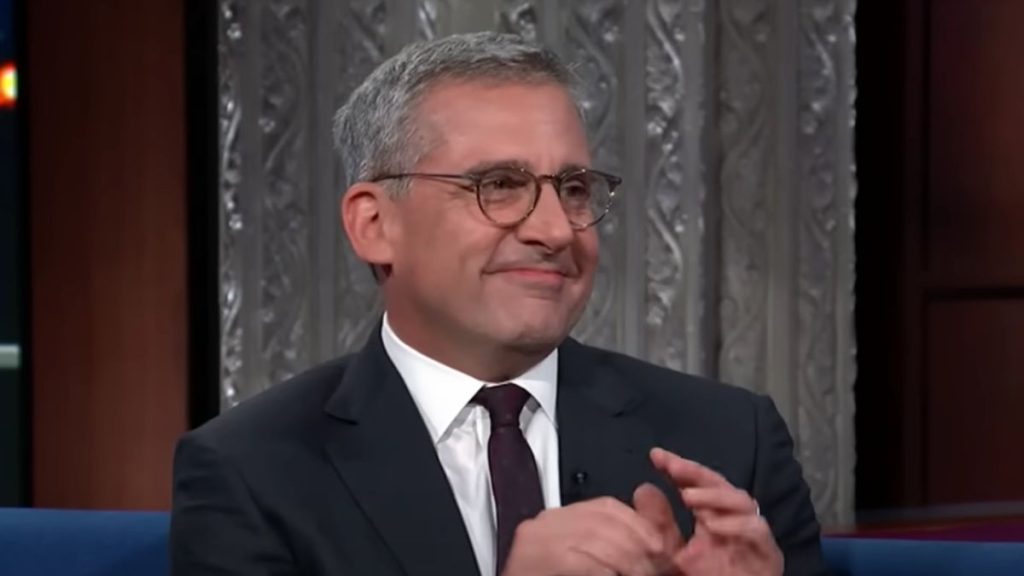Landing a role on a hit TV show can transform an actor’s life overnight. With fame comes steady paychecks, brand deals, and long-term financial security. But what happens when an actor decides to quit before the series ends? The financial impact can be staggering, from lost salaries to strained career opportunities. To understand the real risks, let’s look at five case studies where stars walked away from shows at the height of their success.
1. Steve Carell Leaving The Office

Steve Carell shocked fans when he exited The Office after seven seasons. At the time, he was earning around $300,000 per episode, a figure that could have added millions had he stayed longer. Leaving meant missing out on additional syndication bonuses tied to later seasons. However, Carell successfully pivoted into movies, starring in hits like The 40-Year-Old Virgin and Foxcatcher. While he gave up guaranteed TV income, his career move expanded his net worth through film opportunities.
2. Katherine Heigl Quitting Grey’s Anatomy
View this post on Instagram
Katherine Heigl was once among the highest-paid actresses on television, making $13 million a year during her peak on Grey’s Anatomy. Her decision to step away mid-series shocked viewers and raised questions about her career strategy. Financially, leaving meant walking away from one of TV’s most stable paychecks and future syndication royalties. Afterward, Heigl’s career stalled, with smaller roles and fewer box office hits than expected. Her case shows how quitting too soon can backfire financially.
3. David Caruso Walking Out of NYPD Blue

In the 1990s, David Caruso left NYPD Blue after just one season to pursue a film career. At the time, he was earning $40,000 per episode but believed movies would provide bigger paydays. Unfortunately, his film career never took off, and he lost out on years of lucrative TV earnings and residuals. Caruso eventually rebounded with CSI: Miami, but the gap cost him millions in missed income. His story is a cautionary tale about timing and financial planning.
4. Dan Stevens Exiting Downton Abbey
View this post on Instagram
Dan Stevens was beloved for his role as Matthew Crawley on Downton Abbey, but he left after just three seasons. At the time, Stevens was making roughly £200,000 per season, but quitting meant losing steady income from one of Britain’s biggest shows. Financially, he gambled on breaking into Hollywood—and it eventually paid off. Roles in Beauty and the Beast and Legion gave him broader exposure and bigger paychecks. Still, the immediate financial hit was steep when he left the show early.
5. John Krasinski Nearly Leaving Before Season 9
View this post on Instagram
Unlike others, John Krasinski considered leaving The Office before its final season but decided to stay. By doing so, he not only collected his $100,000-per-episode salary but also secured a stronger role in syndication profits. This decision gave him financial stability before launching a directing and producing career. Staying longer also allowed him to build industry credibility, which boosted his post-show opportunities. Krasinski’s case shows that sometimes staying put provides the best financial launchpad.
The Money Behind the Curtain
Leaving a hit TV show is never just about creative freedom or personal growth—it’s also a financial gamble. Actors risk losing millions in salaries and residuals while betting on future opportunities that may or may not materialize. Some, like Steve Carell and Dan Stevens, find success after their exit, while others struggle to regain momentum. Timing, planning, and career strategy make all the difference when stepping away from the safety of a hit series. In Hollywood, quitting too soon can cost far more than it pays.
Do you think actors are smart to quit hit shows for bigger opportunities, or should they stick it out for financial security? Share your thoughts in the comments!
You May Also Like…
- 6 Reality Show Winners Who Spent the Prize in Less Than a Year
- How These 10 Daytime TV Stars Amassed Huge Wealth
- 6 Former Pageant Winners With Multi-Million Dollar Businesses
The post What Happens Financially When You Quit a Hit Show—5 Case Studies appeared first on Plunged in Debt.







